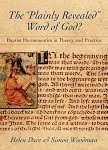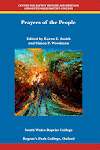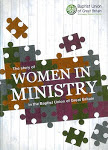
Good morning, and welcome.
Today, we gather to consider a passage that is not only
familiar to us
– it is,
after all, the wedding passage –
but also deeply resonant to our understanding
of what it
means for us to be a community of love.
As we dive into this beautiful piece of scripture,
we will
explore its central theme of love
and how it
calls us to live out our faith in community.
We will also consider the insights of René Girard on
mimesis,
the human
tendency to imitate and desire what others possess,
shedding light on how this aspect of human nature
influences
our capacity to love as Christ loved us.
René Girard's theory of mimesis, or mimetic desire,
suggests
that humans have a fundamental tendency
to imitate
the desires of others.
If you’re new to the words ‘mimesis’, or ‘mimetic’,
just think
of the word ‘meme’,
which is used to describe a viral image or video that
circulates online,
as people
copy and share from one account to another.
Mimesis is fundamentally about desiring
and taking
something from another person
and making
it our own.
But according to Girard, our desires
are not
solely based on individual preferences or needs,
but rather are significantly influenced by what others
desire.
If we see someone else wanting something,
we end up
wanting it too!
This means that our wants and actions
are often
shaped by what we perceive others to value or pursue.
Mimesis can lead to both positive and negative outcomes.
On one hand, it allows for the transmission
of culture,
values, and skills within a society.
But on the other hand, it can result in rivalry, envy, and
conflict
as
individuals compete for the same desired objects or goals.
Girard further proposed the concept of the "scapegoat
mechanism,"
which suggests
that societies often resolve mimetic conflicts
by directing collective violence toward an arbitrarily
chosen individual or group,
thereby
restoring unity and social cohesion.
In our world, we often see scapegoating at work
in the way
people are chosen as the object of hatred
for some innate minority
characteristic,
such as
their gender identity or sexuality,
or
for their socio-economic status,
such as
being a refugee or asylum seeker.
The hatred and mob-violence directed against such people on
social media,
is a classic
example of mimetic desire at work with scapegoating,
as people seek unity for the majority
through the
scapegoating of the minority.
Girard saw this mechanism at work in the crucifixion of
Jesus,
who, as an
innocent victim, exposes the futility of scapegoating
and reveals
a pathway toward non-rivalrous, self-giving love.
So this morning, I’d like to invite each of us
to open the
deep desires of our hearts
to the profound wisdom in Paul’s great hymn to love,
allowing
its timeless message to challenge and transform us.
As we reflect on the patient, kind, and selfless love that
Paul describes,
may we
discover the transformative power of divine love
and its ability to overcome our human limitations,
by
releasing us from the scapegoating mechanisms
that
ensnare us as either perpetrators or victims.
And may we leave here today with a renewed commitment
to embody
this love in our relationships, our communities, and our world.
*Point 1: The Primacy of Love*
Verse 1:
‘If I speak
in the tongues of humans and of angels but do not have love,
I am a
noisy gong or a clanging cymbal.’
In Paul’s great love poem, we are met with a powerful
reminder
of love's
primacy over all other gifts and abilities.
Paul emphasises that no matter how eloquent our speech,
how deep
our understanding, or how generous our actions,
if they are devoid of love,
they are
empty and devoid of true significance.
In our congregation, we strive to foster an inclusive and
liberal environment,
welcoming
people from all walks of life
and
embracing the diversity of gifts and abilities within our community.
In light of Paul's message,
we are
reminded that love should be the driving force
behind
our actions and interactions,
guiding us
to build relationships based on mutual respect,
understanding,
and compassion.
René Girard's theory of mimesis provides, I think, a
fascinating insight
into the
dynamics at play within human communities,
including
communities of faith.
The tendency to imitate and desire what others possess
can lead to
competition, envy, and division.
However, as we strive to live out the love described in 1
Corinthians 13,
we can
create a powerful countercurrent
to this
destructive mimetic force.
By celebrating the unique gifts and abilities of each
individual
and
recognizing the inherent worth of every person,
we can cultivate an atmosphere of love, acceptance, and
unity.
In a world often divided by differences,
we are
called to model a love that transcends these divisions.
Just as Paul declares that love is patient, kind, and
selfless,
so we too
are called to embody these qualities
in our
interactions with one another.
When we prioritise love, we create a space
where
everyone's gifts and abilities can be valued and nurtured,
rather
than being seen as a threat,
so contributing
to a richer and more vibrant community.
Furthermore, this emphasis on love's primacy
challenges
us to examine our motivations and intentions in all that we do.
Are our actions driven by a genuine desire to serve and
uplift others,
or are they
fuelled by a need for recognition or validation?
We are encouraged to cultivate a spirit of humility and
selflessness,
always
striving to place love at the centre of our shared life together.
*Point 2: Love as a Counter to Mimesis*
As we continue looking at Paul’s hymn to love, we come to
verses 4-7,
where Paul
describes the attributes of love:
patience, kindness, generosity, humility, and selflessness.
These qualities stand in stark contrast to the potential
pitfalls
of René
Girard's concept of mimesis – envy, rivalry, and violence.
As we explore the connection between mimesis and love,
we discover
how love serves as a powerful antidote
to the
destructive forces of mimetic desire.
When our desires are shaped primarily by what others desire,
we may find
ourselves trapped in a cycle of envy and rivalry,
constantly
striving to outdo or possess what others have.
In extreme cases, these rivalries can escalate
into
violence and scapegoating.
Love, however, offers a transformative alternative
to the
destructive aspects of mimesis.
As Paul writes, "Love is patient, love is kind.
It does
not envy, it does not boast, it is not proud.
It does not dishonour others, it is not self-seeking,
it is not
easily angered, it keeps no record of wrongs."
In these words, we find a blueprint for relationships
that reject
the pitfalls of mimetic desire
and instead prioritize empathy, compassion, and
understanding.
When we embrace love as described in these verses,
we
counteract the envy and rivalry inherent in mimesis
by celebrating the unique gifts and value of every
individual.
Rather than competing for validation or status,
we
recognize the inherent worth of each person
and seek to
build them up in kindness and humility.
And so love teaches us to be patient with one another,
acknowledging
that each of us is on a unique journey.
Furthermore, love encourages us to be selfless,
seeking the
well-being of others
rather than
solely pursuing our desires.
This selflessness stands in contrast
to the
self-seeking nature of mimetic desire
and fosters a sense of unity and collaboration
within our
community.
As we strive to live out the love described in 1 Corinthians
13,
we create
an environment in which envy, rivalry, and violence
lose their
grip on our relationships.
In their place, we cultivate a spirit of mutual respect,
understanding,
and compassion,
building a community that reflects the boundless love of
Christ.
Through patience, kindness, and selflessness,
we discover
the transformative power of love
and its ability to overcome the limitations of our human
nature.
*Point 3: Love's Enduring Nature*
We come now to verses 8-11, which reveal love's enduring
nature.
Paul writes,
"Love
never fails. But where there are prophecies, they will cease;
where
there are tongues, they will be stilled;
where
there is knowledge, it will pass away."
This passage emphasizes the transient nature
of
prophecies, tongues, and knowledge
while asserting love's eternal quality.
In Girard's theory of mimetic desire,
our wants
are continuously shaped by the desires of others,
creating an insatiable cycle of wanting
and
pursuing what we perceive others to have.
This never-ending chase for fulfilment through mimetic
desire
ultimately
leaves us unfulfilled and searching for something more.
Love, however, offers a different path
– one that
transcends the fleeting nature
of human
desires and achievements.
While prophecies, tongues, and knowledge serve a purpose in
our lives,
they are
ultimately incomplete and temporary aspects of our existence.
Love, on the other hand, provides a lasting foundation
upon which
we can build genuine unity and fulfilment.
In these verses, Paul declares that love "never
fails."
This assertion underscores the unwavering and steadfast
nature of love,
which does
not depend on external factors or achievements.
Instead, it flows from the depth of our hearts
and our
connection with one another through Christ.
Love's eternal quality allows us to move beyond the
limitations of mimetic desire
and
experience a sense of wholeness that transcends our worldly pursuits.
As we embrace love, as described in 1 Corinthians 13,
we discover
a source of strength and unity
that endures even as our circumstances change
and our
knowledge evolves.
Furthermore, love offers a path to lasting fulfilment
by focusing
our attention on the well-being of others
and the
shared bonds that connect us.
By prioritizing empathy, compassion, and understanding in
our relationships,
we create a
sense of interconnectedness
that
satisfies our innate desire for belonging and purpose.
In essence, love's enduring nature provides a powerful
antidote
to the
insatiable and transient aspects of mimetic desire.
As we cultivate love in our lives and communities, we build
a foundation
that
supports lasting fulfilment, unity, and transformation.
This eternal love serves as a beacon of hope,
guiding us
toward a more profound understanding of ourselves
and our
relationships with one another.
*Conclusion:*
In conclusion, our exploration of 1 Corinthians 13
and the
insights of René Girard
has led us to a deeper understanding of love's
transformative power
and its
ability to overcome the limitations of mimetic desire.
As we reflect on Paul's words and Girard's theory,
we are
called to consider how we can apply these lessons
to our
daily lives and relationships.
By embracing love as the foundation of our interactions with
one another,
we can
create a countercurrent to the envy, rivalry, and exclusion
that often
result from mimetic desire.
Love, as described in 1 Corinthians 13, is patient, kind,
and selfless
– qualities
that foster unity and understanding within our communities.
As members of this congregation,
let us
commit to practising love in our daily lives.
Let us be patient with one another,
recognizing
that each individual is on a unique journey,
and strive to be kind in our words and actions.
Let us prioritise the well-being of others,
seeking to
build them up rather than compete with them.
As we cultivate a spirit of love and understanding,
we will
begin to see the transformative effects
on our
relationships and our community.
Envy and rivalry will give way to empathy and compassion,
generating
a sense of interconnectedness and belonging.
In doing so, we will create a more inclusive and
compassionate congregation
that
reflects the boundless love of Christ.
Furthermore, let us remember that love's enduring nature
offers a
path to lasting fulfilment and unity.
By placing love at the centre of our shared life,
we can
transcend the fleeting aspects of human desires and achievements
and experience the wholeness that comes
from
genuine connection and understanding.
So in closing, let us take the lessons of 1 Corinthians 13
and René Girard to heart,
committing
ourselves to the practice of love and the pursuit of unity.
As we do so, we will build a congregation
that
embodies the transformative power of love
and serves
as a beacon of hope and compassion for all.
May we embrace this calling
and, in
doing so, experience the profound joy and fulfilment
that comes
from loving one another as Christ loves us.
*Prayer:*
Loving God, we come before you with gratitude
for the
profound gift of love that you have bestowed upon us.
As we reflect on the teachings of 1 Corinthians 13 and the
insights of René Girard,
we are
reminded of love's transformative power
to overcome
division and create unity in our lives.
May we embrace love as the foundation of our relationships,
seeking to
be patient, kind, and selfless
in our
interactions with one another.
Help us to cultivate empathy and understanding,
celebrating
the unique gifts and experiences
that each
individual brings to our community.
As we strive to overcome the limitations of mimetic desire,
guide us in
the practice of genuine compassion and humility.
May we prioritize the well-being of others
and
recognize the inherent worth of every person,
fostering an environment of inclusion and belonging.
Through the power of your boundless love,
we believe
that our congregation can be transformed.
May we be a beacon of hope and unity
in a world
that often struggles with division and conflict,
reflecting the enduring nature of your love in all that we
do.
Thank you for the gift of love, which unites us
and offers
a path to lasting fulfilment.
May we embody this love in our daily lives,
bringing honour
to your name
and sharing your boundless grace with all those we
encounter.
Amen.














